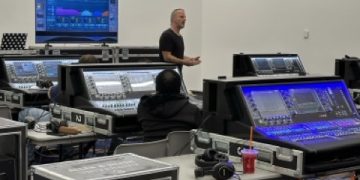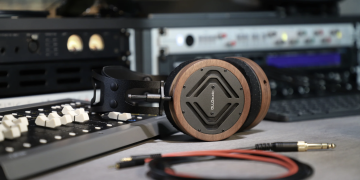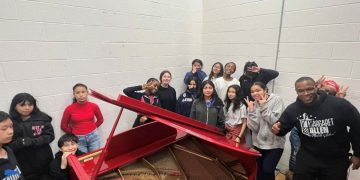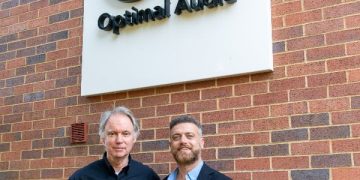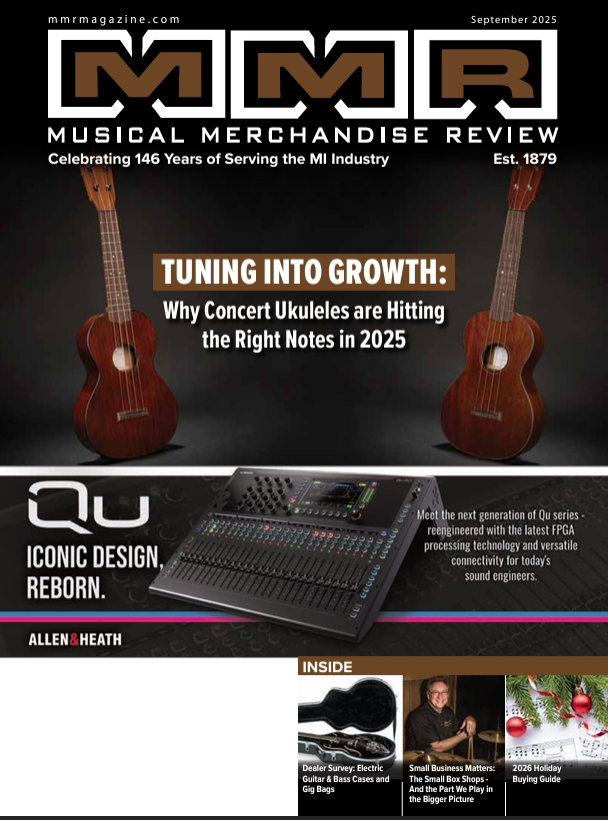 Los Angeles-based Harmony Project announced that it is working in partnership with the Yamaha Music and Wellness Institute to accelerate nationwide expansion of its innovative ‘Mentoring Through Music’ program.
Los Angeles-based Harmony Project announced that it is working in partnership with the Yamaha Music and Wellness Institute to accelerate nationwide expansion of its innovative ‘Mentoring Through Music’ program.
During the halftime show of this past Super Bowl 50, Harmony Project students from Youth Orchestra Los Angeles (YOLA) realized a dream of a lifetime by performing under Gustavo Dudamel, world-renowned conductor of the Los Angeles Philharmonic Orchestra in front of more than 100 million television viewers with Chris Martin and Coldplay.
Many of these young musicians were from Los Angeles’ most underprivileged communities, effectively illustrating how music can enable low-income children and families to advance beyond seemingly insurmountable obstacles.
Making the difference is Harmony Project, a music-based mentoring program founded in 2001 by Dr. Margaret Martin with a small, dedicated team.
“The inspiration for Harmony Project came from a posse of Los Angeles gang members with shaved heads, tattoos and oversized clothing,” explains Dr. Martin. “They were walking through a farmer’s market and stopped to listen to a small child playing Brahms on a tiny violin. After five or six minutes, I watched those gang members take out their own money and lay it gently in the child’s case.”
That child was her son, and that moment became the inspiration for a transformational program that currently serves more than 2,000 students across half of Los Angeles’ 21 designated gang reduction zone neighborhoods. To date, affiliated programs have launched in Ventura, Calif., New Orleans, Tulsa, Okla., Kansas City, Mo., East St. Louis, Ill., Phoenix, San Francisco and Hudson, N.Y.
Harmony Project’s new partnership with the Yamaha Music and Wellness Institute will facilitate expansion of the program to other cities across the country, largely through the introduction of a collaborative training strategy for both program facilitators and local agencies committed to sustaining “Harmony Project of America” programs in their respective communities. The new alliance will also track the progress of each child in the program, to create a robust central data repository for both short- and long-term outcomes-based research on the impact music has on underprivileged communities and individuals.
According to Barry Bittman, MD and CEO of the Yamaha Music and Wellness Institute, this alliance will not only serve those in need, but it will also facilitate a better understanding of how music can optimize the potential of each child in the face of life’s greatest challenges.
“Harmony Project may very well be the antidote for the challenges low-income communities face, such as alienation, distrust, poverty, crime and gangs that thwart each child’s potential to thrive,” said Dr. Bittman, who felt drawn to another key element of the program: long-term success.
www.yamaha.com









